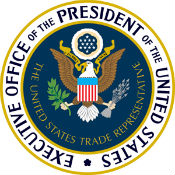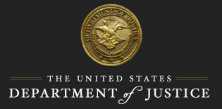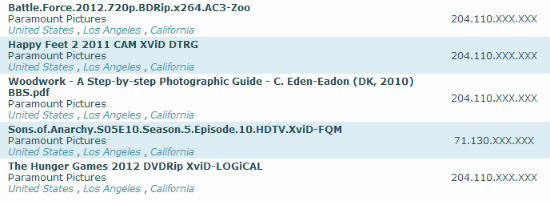Two brothers from the UK in their mid-twenties have been convicted for operating websites that indexed links to unauthorized streams of copyrighted movies. The pair were charged in 2010 and this week were handed nine month suspended jail sentences and ordered to complete 150 hours of unpaid work. The convictions follow an investigation by West Yorkshire Police in collaboration with the movie industry group FACT, who feel that in the UK the tide is turning in favor of copyright holders.
 With more than a million monthly visitors filmzzz.com and legalmovies.tv were among the most-visited movie streaming indexes back in 2009.
With more than a million monthly visitors filmzzz.com and legalmovies.tv were among the most-visited movie streaming indexes back in 2009.
The sites were operated by Faraz and Ayaz Saddiq, two brothers from Leeds, UK. In common with other “linking” sites they didn’t host any copyrighted content but merely linked to it. However, that did not prevent the men from running into trouble with the law.
Tipped off by the Hollywood-funded anti-piracy group FACT, West Yorkshire Police’s Economic Crime Unit launched an investigation into possible copyright offenses. The police confirmed that the two men were responsible for the sites in question and in August 2010 they were charged.
According to the complaint the Saddiq brothers were responding to takedown requests, but made no effort to remove other clearly infringing content. The men were warned that they could be committing a criminal offense under copyright law but continued to operate the websites.
Last week 27-year-old Faraz Saddiq and his 26-year-old brother Ayaz were both sentenced to a 9 month jail terms, suspended for two years. In addition they were ordered to carry out 150 hours of unpaid work.
FACT welcomes the verdict and reports a significant change in attitude since the owner of TV streaming links site SurfTheChannel was sentenced to four years jail-time earlier this year.
“We have seen a definite shift since the conviction and sentencing of Anton Vickerman which proved conclusively that running an ‘indexing’ or ‘search’ site is criminal activity,” a FACT spokesperson told TorrentFreak today.
FACT is using the Vickerman verdict to convince operators of other streaming sites to “voluntarily” hand over their domains to escape prosecution, which many have done since.
“FACT seeks to reduce pirate activity by targeting source piracy and those running criminal businesses providing access to pirated material. However, not every case needs to end up in criminal prosecution and we always attempt to contact site operators to ask them to comply with the law,” FACT explains.
“Anyone who creates content, who works in the film or broadcasting sector or whose family relies on the income from someone working in those areas deserves the right to be protected,” FACT adds.
With these new convictions it appears that the UK has transformed into something of a no-go area for streaming link sites. This is quite different from the position two years ago. In 2010, the admins of TV-Links, a similar linking website, were acquitted because their website was deemed to be a ‘mere conduit’ of information.
 For many years Russia has been viewed as a soft touch on the issue of copyright infringement.
For many years Russia has been viewed as a soft touch on the issue of copyright infringement. Most TorrentFreak readers know that when you use BitTorrent without a VPN, the whole world is able to see what you’re downloading and where from.
Most TorrentFreak readers know that when you use BitTorrent without a VPN, the whole world is able to see what you’re downloading and where from.







 While Christmas is a time for sharing there are certain files that some people believe should be excluded from that experience.
While Christmas is a time for sharing there are certain files that some people believe should be excluded from that experience.




 Online censorship is a controversial subject. It’s often used in an attempt to ‘protect’ a group of people from something, but it rarely works as intended, and once in place feature-creep often sets in.
Online censorship is a controversial subject. It’s often used in an attempt to ‘protect’ a group of people from something, but it rarely works as intended, and once in place feature-creep often sets in.
